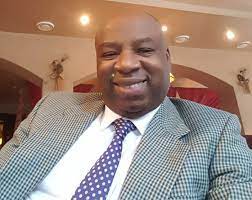Africa
Arctic Indigenous People and Their Traditional Culture: Potentials for Tourism Development, by Professor Maurice Okoli

The Arctic region is a geographic region spreading around the North pole. It is the Northernmost region of the earth characterized by distinctively polar conditions of climate, plant, animal life, Physical features and breathtaking landscapes and unique ecosystems which is home to diverse Indigenous cultures, including the Inuit, Saami, and Chukchi peoples.
These cultures have thrived for thousands of years, developing rich traditions and ways of life intimately connected to the land and its resources. Arctic is very important not just because it helps keep our world’s climate in balance but arctic sea ice acts as a huge white reflector of the top of the planet, bouncing some of the sun’s ray back into space helping keep the earth at an even temperature.
As global interest in the Arctic grows, particularly in the context of climate change and environmental conservation, tourism has emerged as a significant factor influencing Indigenous communities. This paper explores the intricate relationship between Arctic Indigenous cultures and tourism, highlighting both the opportunities and challenges that arise from this interaction.
The Richness of Arctic Indigenous Cultures
Arctic Indigenous peoples possess a deep understanding of their environment, which is reflected in their languages, arts, and traditional practices. Their cultures are often characterized by a profound respect for nature, with belief systems that emphasize harmony with the land, animals, and natural elements which encompasses traditional knowledge, skills, and practices essential for survival in the Arctic.
This cultural heritage is expressed through storytelling, music, dance, and crafts, such as intricate carvings and textiles. The preservation of these cultures is vital not only for the communities themselves but also for the broader understanding of human adaptation to extreme environments. As climate change threatens traditional ways of life, the resilience of Arctic Indigenous cultures becomes increasingly important. Tourism, when approached thoughtfully, can play a role in preserving these traditions and ensuring that Indigenous voices are heard.
Indigenous tourism in the Arctic: Opportunities for Indigenous Communities
Indigenous tourism refers to the activities and experiences that are rooted in the culture and tradition of the indigenous communities. These experience are often led by the indigenous people themselves ensuring authenticity and original representation of their heritage. The rise of Arctic tourism presents numerous opportunities for Indigenous communities. Eco-tourism and cultural tourism allow visitors to engage with Indigenous cultures in meaningful ways, fostering respect and understanding.
Many Indigenous groups have begun to develop their own tourism initiatives, offering guided tours, cultural workshops, and authentic experiences that showcase their heritage. This not only provides economic benefits but also empowers Indigenous peoples to reclaim narratives about their cultures. Through tourism, Indigenous communities can share their stories, traditions, and knowledge with a global audience.
This exchange promotes cultural growth and can lead to increased awareness of the challenges faced by these communities, including the impacts of climate change and the need for sustainable practices. Furthermore, the revenue generated from tourism can be reinvested into community development, education, and the preservation of cultural practices.
Challenges of indigenous tourism in the Arctic
Tourism in the Arctic poses significant challenges. One major concern is the risk of cultural commodification, where Indigenous traditions are reduced to mere attractions for tourists. This can lead to misrepresentation and a dilution of cultural practices, undermining their significance within the community. It is essential that tourism initiatives are led by Indigenous peoples themselves, ensuring that their cultures are represented authentically and respectfully.
Moreover, the influx of tourists can strain local resources and disrupt traditional ways of life. Environmental degradation, including increased waste and disturbance of wildlife, poses a direct threat to the delicate Arctic ecosystem. Indigenous communities are often at the forefront of these changes, facing the dual challenge of preserving their cultures while managing the impacts of tourism.
Conclusion
Management of the relationship between Arctic Indigenous cultures and tourism is complex and multifaceted. While tourism offers opportunities for cultural exchange, economic development, and increased awareness of Indigenous issues, it also presents challenges that must be navigated carefully. It is crucial for tourism in the Arctic to be developed in collaboration with Indigenous communities. By respecting and honoring the rich cultural heritage of Arctic Indigenous peoples, tourism can become a powerful tool for both cultural preservation and sustainable development, fostering a deeper understanding of the Arctic’s unique and fragile environment.
—
Professor Maurice Okoli is a fellow at the Institute for African Studies and the Institute of World Economy and International Relations, Russian Academy of Sciences. He is also a fellow at the North-Eastern Federal University of Russia. He is an expert at the Roscongress Foundation and the Valdai Discussion Club.
As an academic researcher and economist with keen interest in current geopolitical changes and the emerging world order, Maurice Okoli frequently contributes articles for publication in reputable media portals on different aspects of the interconnection between developing and developed countries, particularly in Asia, Africa and Europe. With comments and suggestions, he can be reached via email: markolconsult@ gmail.com
























